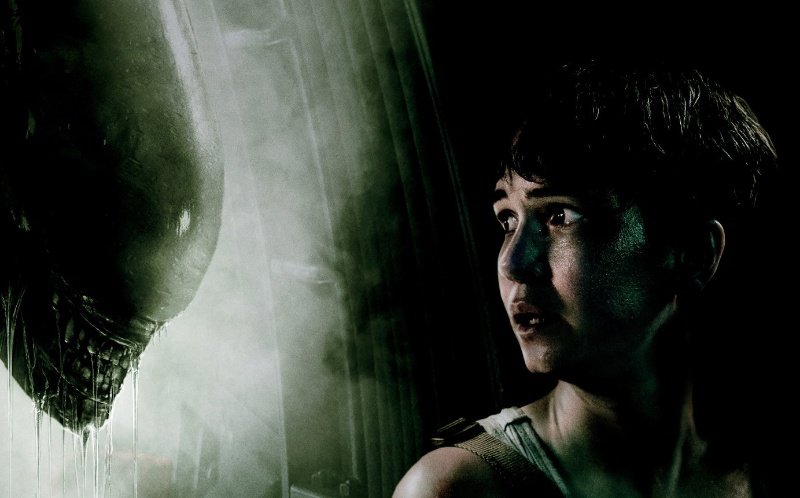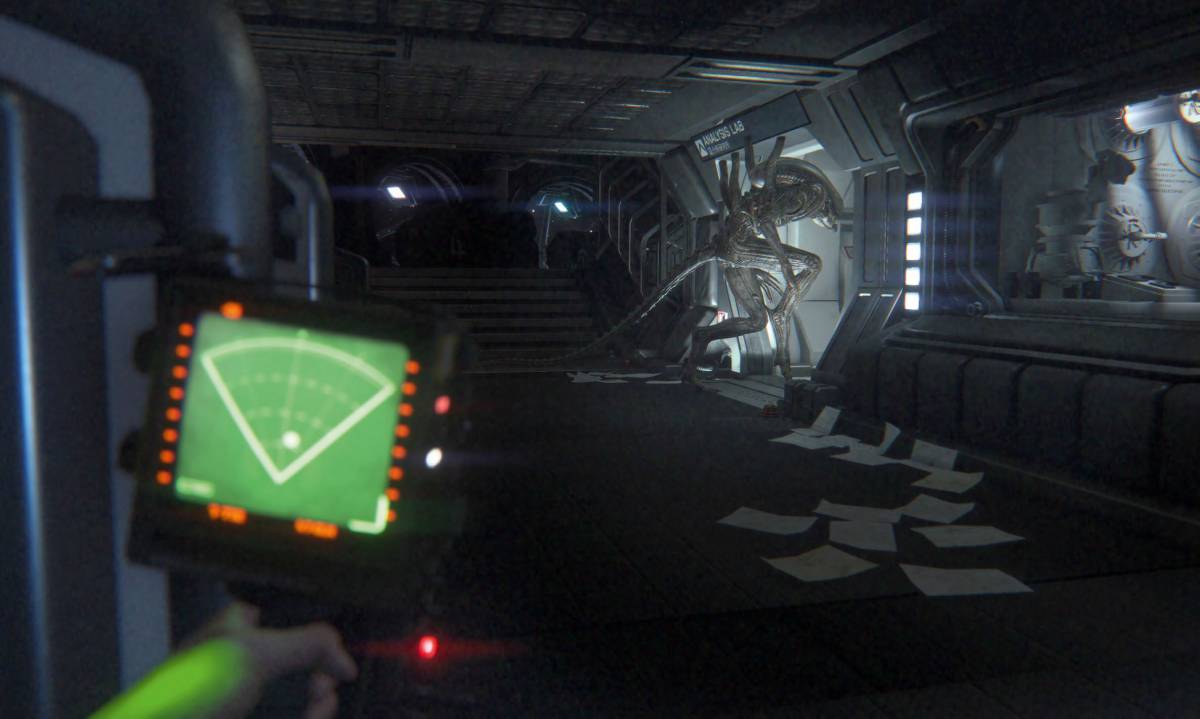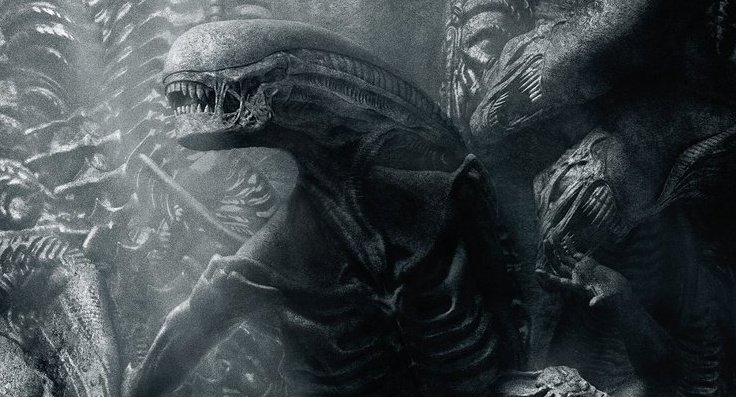
Of all the different forms alien life has taken in fiction, sentient goop seems to be a particular favourite, as it neatly sidesteps that notion that any kind of alien life form would resemble something that exists here. It’s very difficult to imagine a biological form that is completely different to any plant or animal ever discovered on Earth. Goop is formless, goop is abstract, go with goop.
The reason I bring this up is because one particular brand of goop is now being given the chance to redeem itself on the big screen – the symbiote from the Marvel universe, most famously responsible for turning Eddie Brock into Venom. Late last week, news broke that a standalone movie about the character is being made by Sony, directed by Zombieland helmsman Ruben Fleischer and starring Tom Hardy.
The excitement surrounding this is almost palpable, people love Venom, he’s perhaps the most beloved of all the Spider-Man antagonists, but not everyone is quite so keen on him, least of all Sam Raimi. Before Spider-Man 3 went into production, the internet was ablaze with debate about whether or not we’d get to see a big screen version of Venom, and a lot of the doubt surrounded the fact that Raimi himself wasn’t a fan of the character.
Venom did appear in the film, but it almost certainly would have been better if he hadn’t. Raimi was pressured by Avi Arad and Columbia to include the character because he was an audience favourite. There’s plenty wrong with Spider-Man 3, but the muddled, confused tone of the narrative brought about by the presence of the symbiote is certainly one of its greatest weaknesses. It tries to do far too much, and any kind of narrative consistency is lost in the storm.

This brings things around to Prometheus, which suffered the opposite issue, in a sense. While the alien goop in Spider-Man 3 was there because the people demanded it, the black goop which appeared in Ridley Scott’s kind-of sort-of Alien prequel actually contributed to a negative fan response. Fans didn’t want goop, they wanted the xenomorph.
For all its faults (and there are many), Prometheus represents one of the most interesting approaches to a franchise revival in an era that’s been teeming with them. It featured virtually none of the narrative cues, themes or iconography of its forebear. Alien is, as many have observed, essentially a slasher movie in outer space, a way of taking an already life-threatening situation and then using science fiction to up the ante. Prometheus is an exploration of the origins of humanity, a ponderous, idea driven film which uses the franchise as a launchpad to explore other things.
People didn’t like that. Although many of the complaints stemmed from the fact that Prometheus, while interesting, was hampered by poor narrative structure, weak characters and weaker dialogue; for many others the key issue with it seemed to be that it didn’t feel like an Alien prequel, or even a film that existed within the same franchise. Therein lies the paradox, Prometheus likely would have taken a far less brutal beating (and may have even been a better film overall), had it not been linked to Alien, but without that link, it never would have been made in the first place.
Now we’ve got Alien: Covenant, a sequel to Prometheus which seemed to be setting out to correct the previous film’s mistakes and bring things back into line with the long suffering franchise. Just as a forewarning, the rest of this article is going to venture into spoiler territory. If you want a more rounded account of the film, head over here to read our review, but otherwise, proceed at your own risk.
About two thirds of the way through Alien: Covenant, Michael Fassbender’s David leads Billy Crudup’s hapless acting captain into a cave that might as well have been marked ‘This Ends Badly For You’ and introduces him to a clutch of very familiar eggs. One poorly written jump scare later, we get our first glimpse of a fully realised xenomorph in a Ridley Scott movie since the first one went tumbling out of the Nostromo shuttle’s airlock in 1979. Then it stands up and stretches its arms out to resemble Jesus on the crucifix.
That, to me, is probably the best single example of Alien: Covenant‘s biggest problem – the xenomorph has absolutely no business being in the film. It actually starts out very strong, the crew of the Covenant are woken early in the midst of a freak accident which leaves their original captain dead. The moment we’re introduced to these people, they’re in a desperate, tragic situation, we’ve already got conflict and a very tangible form of empathy. That empathy actually makes their idiotic decision to sideline their colonising mission to go and check out an unfamiliar planet more plausible – it’s a decision that was made irrationally, by minds addled by grief and doubt.
Even when things start getting dicey, it stays interesting. Never mind the fact that two crew members get infected almost immediately because apparently the only reason to wear a helmet is if the atmosphere isn’t breathable (hasn’t anyone in the future ever heard of the common cold?), the way the tension ratchets up once the black goop starts taking hold is very effective. The body horror is shocking, the circumstances are dire and the emotional turmoil is completely believable. It’s at this juncture that the film undergoes a dramatic metamorphosis.
In many ways, Covenant feels like three acts taken from three separate movies. The first act is a tense, serviceable sci-fi horror, the second is a continuation of Prometheus and the third is a predictable, almost insultingly unimaginative retread of every Alien film since the original. The first two acts have their merits, but every problem they exhibit can be traced back to the same root issue – the fact that everything is ramping up to a xenomorph showdown at the end, something which we’ve seen dozens of times before. It’s hard not to wonder why the film ends this way, but the answer is right there – fan demand.

Alien: Covenant sets out to repair the mistakes of Prometheus. In some regards it succeeds at this (better character motivation, sharper scripting, tension), but in others it utterly and spectacularly fails. The lack of any xenomorph action in Prometheus was not one of its failings, in fact it was probably one of its strengths. In Alien we were never given any reason to wonder what the evolutionary origin of the xenomorph was, it was simply a terrifying, bloodthirsty creature which had collided with mankind through a combination of misfortune and the whims of an evil, faceless corporation, granting us with one of the best sci-fi horror films ever made, whilst also giving birth to the most tired, overused narrative trope in all of sci-fi horror. Giveth, taketh away.
It’s interesting to speculate on where they came from, for sure, and there’s something to be said for the idea that the birth of the xenomorph is somehow tied to the origin of humanity, but those are some broad, complex ideas, ideas which certainly don’t gel with the kind of dramatic tension Alien relied on. Monsters are at their most effective when you know as little about them as possible, the notion of an otherworldly being that’s taken a special interest in you is scary enough by itself. Over-explain it, and the tension vanishes.
The only thing which really counts as real, hard sci-fi in Alien is the life cycle of the creature itself, because it’s exploring the concept of how a creature from another world might rely on other organisms in order to survive. In every other regard, it’s a horror film, and horror film antagonists are always ruined the moment they’re made into a legacy. Freddie Krueger, Michael Myers, Jason Vorhees, Leatherface; all of them became less interesting and far less scary the more the spotlight bent towards them. The xenomorph is no different, it peaked at Aliens, because all James Cameron did to expand the lore was take it to its logical conclusion, he completed the life cycle, took a singular and showed us what the plural looked like.
Does that mean that it’s not possible to make an effective Alien film now? Not necessarily, if you made a film in which the xenomorph was merely the basic cause of a broader problem, you might be able to explore some interesting ideas. The video game Alien Isolation is interesting because it’s actually about a mutiny aboard a space station, the presence of our old tooth-tongued friend was just the catalyst that sets the mutiny into motion. For most of the game it’s just a looming spectre, a dangling sword.

Sadly we live in an age where studios simply do not gamble. Marvel manage to trade off two or three half-assed sequels for the occasional risky play, but big budget, high concept cinema seems to live almost entirely in the realm of the sequel, the prequel, the soft reboot, the hard reboot and the bootstrap. I may have made some of those up.
New intellectual properties tend to be regarded by studios as job applications, almost. Josh Trank was ‘applying’ to make Fantastic Four when he found success with Chronicle, Dennis Villeneuve was ‘applying’ to make Blade Runner 2049 when he made Arrival. Neither director necessarily set out to end up with a franchise script in their hands, but as far as studios are concerned, films which are based on new ideas are merely a demonstration of a director’s ability to revitalise old, familiar ones. The kind that people will go and see based on pedigree alone.
Some directors are less inclined to follow that cycle. As if there weren’t enough reasons to love him already, Jordan Peele recently revealed that, following the runaway success of Get Out, he was offered the chance to direct the live-action adaptation of Akira, but he declined. Hopefully he won’t be the last breakout filmmaker to keep his feet planted when the dump-truck full of money pulls up.
Here’s the thing though – Ridley Scott isn’t a breakout filmmaker, he wanted to go back and explore these ideas. Something tells me that he would have rather kept the ‘A’ word out of the title and just focused on expanding the ideas explored in Prometheus, which make up some of the most thought-provoking scenes in Covenant, scenes which feel like they were pulled out of a much more interesting film, and then squashed and trimmed until they fit with all the corridor chasing and shower splattering in the final act.
The film ends with David placing several face-hugger embryos in with the human ones on the colony ship and getting ready to continue fashioning himself into a kind of tinkerer deity. That’s actually a pretty fascinating ending, one which provides the slim chance of an interesting follow-up, one which will hopefully draw the curtains on the Alien cinematic franchise for a while, if not for good.
Fan demand is perhaps not the best term, since it conjures up images of huge mobs of people crowding outside Universal Studios holding up signs with pictures of all their favourite characters. Studios decide what the fans want for them, and in many ways it’s a meteorological approach. The safest way to ensure a return on investment is to play off of people’s sense of nostalgia. We live in dark, depressing times, and as South Park so cannily observed through its ‘Member Berries’, it’s a lot easier to deal with if you’re constantly being reminded of all the things you loved when you were younger.
https://www.youtube.com/watch?v=ndI9vkgw_1Y
That’s the problem with ‘hype’ – it’s much harder to get excited about something if you aren’t familiar with anything about it. Think of any successful blockbuster from the past few decades that didn’t have at least one recognisable aspect to draw people in. Even if you look at something as wacky and unproven as Ghostbusters, it had Dan Aykroyd and Bill Murray, both of whom were already household names. The days of relying on a film generating interest through concept alone are long gone, there’s far too much money involved now.
Despite this, it’s an interesting time for cinema. Retreads, remakes and follow-ups are still making money but the same criticisms are being made every time, and audiences are beginning to wise up. Somewhere down the line, studios might be forced to change their strategy. The success or failure of any one film can often change the tide.
Some of the coverage you find on Cultured Vultures contains affiliate links, which provide us with small commissions based on purchases made from visiting our site.

